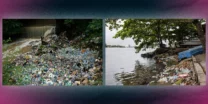GROUPS of environmentalists from Global Alliance for Incinerator Alternatives (GAIA) Asia Pacific and Ecowaste Coalition, have opposed the pending waste-to-energy incinerator in Davao City as it allegedly poses a danger to the environment.
In August 2022, GAIA said in a report that the City Council of Davao gave its unanimous approval to the construction of a waste-to-energy facility that would be subsidized by the Japan International Cooperation Agency (JICA).
But one of the project’s critics is the Interfacing Development Interventions for Sustainability (IDIS) – Davao.
Waste-to-energy incinerators use household and commercial garbage as an alternative fuel to generate electricity.
A news report from Sunstar Davao in 2022 quoted Davao City Councilor Tek Ocampo, who chairs the Committee on Environment and Natural Resources, said waste-to-energy is a “proven and efficient” technology being adopted globally to address waste problems.
Ocampo said in an August 2022 press briefing that Davao City is currently generating 600 to 700 tons of garbage daily, making waste-to-energy relevant to the city.
Despite filing the measure as “urgent,” Ocampo also noted that “the city is open to suggestions,” specifically programs that are alternative to waste-to-energy facilities.
The facility is slated to be constructed in Barangay Biao Escuela, a 10-hectare land located in the Tugbok District, Davao City. It will be situated close to the barangay’s school as well as agricultural lands, and it will be only a few hundred meters away from the site where the affected communities will be relocated, according to GAIA.
While this is an option, the United Nations Environment Programme said in a guideline that waste-to-energy incinerators alone could not solve existing waste problems.
“The construction of this facility will not only be dangerous to people’s health but will also destroy valuable agricultural land. Land that could be used to cultivate resources for the community,” said Gary Villocino of Masipag, a network of farmers in Davao.
According to GAIA, communities have pointed out that the city’s trash consists of around 50 percent organic waste, which cannot be burned using the type of WtE technology that is currently being planned by the city council.
Advocates point out that the waste-to-energy project is not a “financially viable” initiative for JICA, the local government, or the private sector. This is a point that is made by advocates.
Peter Damary of start-up enterprise Limadol, which focuses on food waste segregation, said instead of waste-to-energy incinerators, Davao needs to focus on segregation.
“In Davao’s case, around 50 percent of waste is composed of food waste. If removed from the waste stream through composting, it eases the burden on landfills and leaves other waste available for recycling. Further, the environmental value composting contributes to methane reduction can not be ignored,” he said.
The groups also said that waste-to-energy incineration is a “band-aid solution” that will only make the climate situation “worse in the long run.”
It likewise called on the local government and the JICA to facilitate zero waste schemes because they provide a stable, comprehensive solution to the city’s waste dilemma.
“We call on JICA and the local government to support zero waste systems as they offer an inclusive, effective, and sustainable approach to the city’s waste problem,” the group said.
RELATED STORIES:








